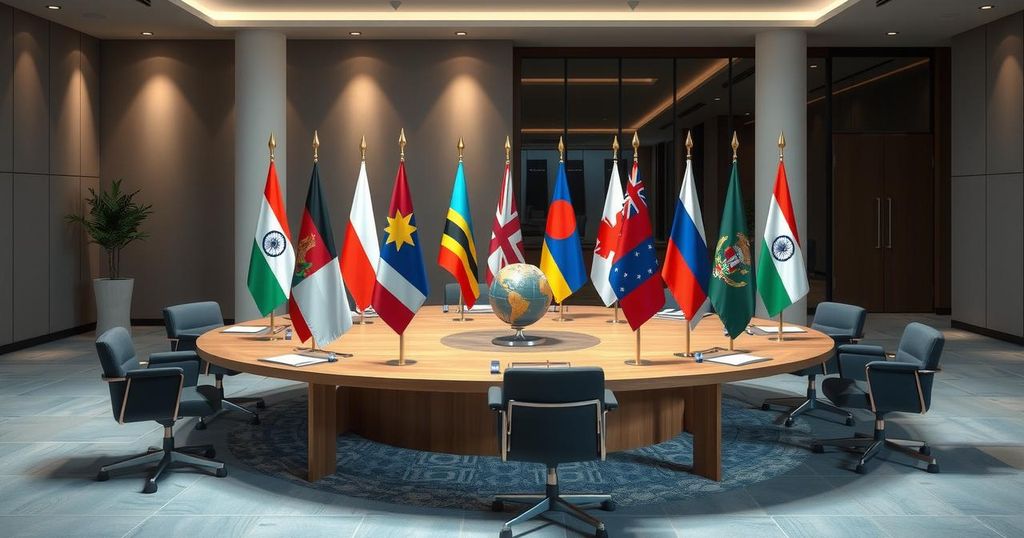The political situation in Guinea-Bissau is increasingly contentious as President Embaló dissolves parliament, leading to opposition threats of protests. The Supreme Court’s ruling extending EMBALÓ’s term heightens tensions. An ECOWAS mediation effort was dismissed, indicating a troubling dynamic between regional authority and national governance. With upcoming elections, the implications for regional stability and Embaló’s leadership loom large.
In December 2019, President Umaro Mokhtar Sissoco Embaló won the presidential elections, receiving a five-year mandate and positioning himself for re-election in 2025. However, in December 2023, Embaló controversially dissolved parliament without scheduling new elections, prompting opposition leaders to accuse him of undermining the electoral process. They have threatened to mobilize mass protests and civil disobedience if a clear election date is not set.
A major point of contention revolves around the end date of Embaló’s term. The opposition claims his mandate ends on February 27, 2025, as stipulated by the constitution, but the Supreme Court extended it to September 4, 2025, a move that the opposition vehemently opposes. This legal dispute further complicates the political landscape in Guinea-Bissau.
In September 2024, President Embaló announced he would not seek a second term in the upcoming elections, although he later hinted that this decision was not final, introducing uncertainty about his political intentions. This indecisiveness, combined with escalating tensions, has created a volatile environment in Guinea-Bissau.
On March 3, 2025, an ECOWAS delegation was sent to mediate the political crisis, but their mission ended abruptly when President Embaló expelled them, warning them to refrain from meddling in the nation’s internal affairs. This rejection of ECOWAS intervention marks a significant deviation from previous regional responses to political crises.
Despite the diplomatic setback, Embaló confirmed his intention to run for a second term in the November elections, signaling a preference for French over ECOWAS influence in Guinea-Bissau. This choice raises questions regarding his governance and the credibility of regional efforts to restore stability, as ECOWAS has not taken substantial action to address the crisis.
President Embaló’s actions reflect a concerning lack of leadership during this upheaval. His approach could lead to further destabilization in Guinea-Bissau and isolation, particularly if discontent rises among the populace or military factions. Moreover, he now faces the question of whether he can rely on French support amid historical complexities in West African politics.
The urgent call for intervention by seasoned mediators such as Dr. Mohamed Ibn Chambas highlights the pressing need for effective dialogue and action in Guinea-Bissau. The continued absence of decisive measures from ECOWAS will have lasting implications for future regional interventions and the organization’s role in maintaining peace across West Africa.
In conclusion, Guinea-Bissau’s political turmoil under President Embaló showcases a critical struggle over governance and regional intervention. The opposition’s accusations of stalling the electoral process and the Supreme Court’s controversial ruling reflect deeper issues of legitimacy and authority. Moreover, the apparent dismissal of ECOWAS highlights significant challenges for the regional body in asserting its influence and the broader implications for future crises in West Africa. President Embaló’s decisions will be pivotal in shaping the trajectory of both the nation and regional stability.
Original Source: thepoint.gm




